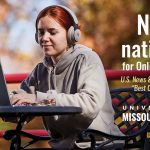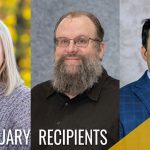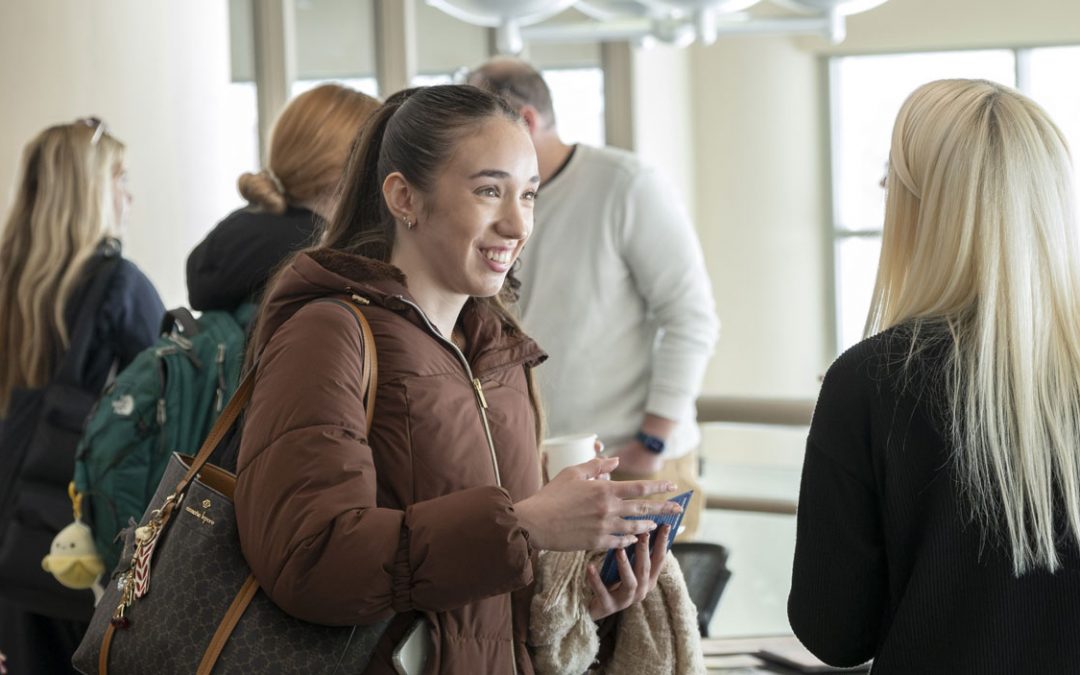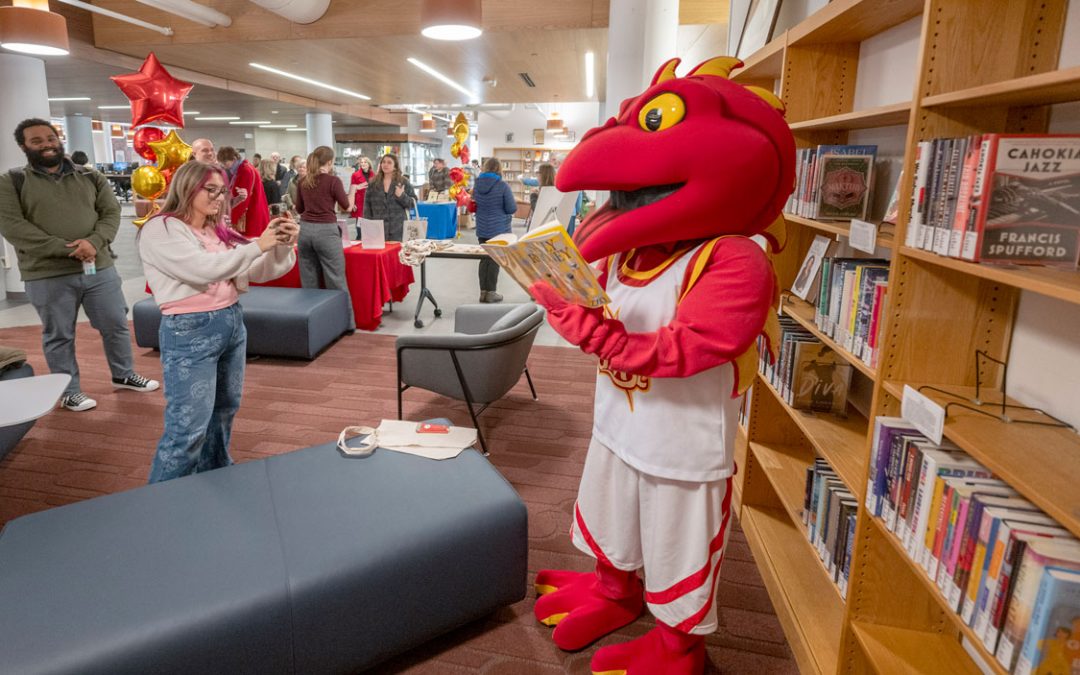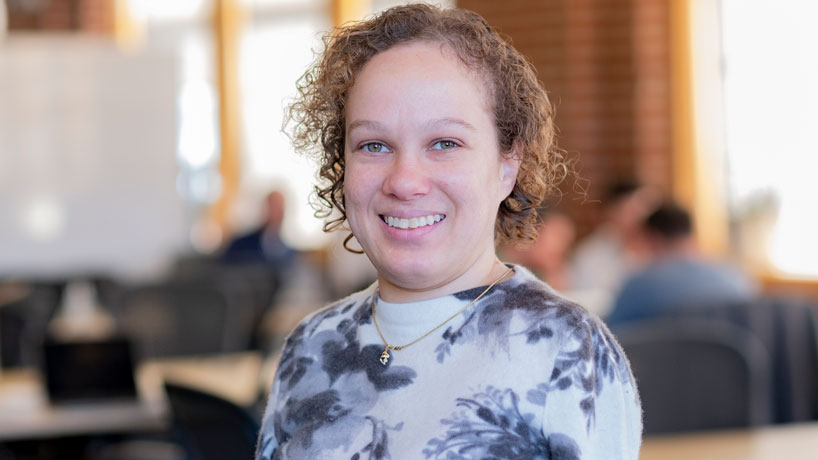
Letisha Wexstten wants to help others with disabilities secure opportunities in the job market with her digital platform, V15Able. (Photo by August Jennewein)
Letisha Wexstten earned an associate degree in graphic communications St. Louis Community College in 2012 and struck out to find a job and start her career.
And like many job hunters, she began to feel frustrated. Though she felt qualified, was a hard worker and had a portfolio, she couldn’t land a job.
“I wasn’t really being told anything,” Wexstten said. “It was just a ‘We’ll contact you later.’ And in rejection letters, it would say, ‘You’re not what we’re looking for at this time.’ It was very generic. There wasn’t anything in there that stood out to me as, ‘Oh, I should be working on this, or this is how I can improve my portfolio.’ It was just the generic type of deal.”
But she had a feeling about what was going on.
Wexstten was born without arms. She surmised that employers believed she wouldn’t be able to do the work, a circumstance many people with disabilities face. She became discouraged when her peers without disabilities would come into class announcing they’d found jobs and she still hadn’t. She struggled with the rejection, which made her begin to doubt her skills.
That frustration stuck with her even after she returned to school to pursue her bachelor’s degree in graphic design from the University of Missouri–St. Louis, and she felt a desire to empower members of the disabled community facing similar challenges.
That was the beginning of V15Able. Pronounced “viable,” it is a digital platform that allows job seekers with disabilities to connect with potential employers and showcase their skills. It is in its preliminary stages but has already garnered valuable attention.
The journey began in 2019 when Wexstten was finishing her degree at UMSL. Tasked with a class assignment to “solve a problem,” she knew immediately which one she wanted to tackle.
She wound up entering the project she created in UMSL’s inaugural Entrepreneur Quest Student Accelerator pitch competition, and she won first place, receiving $15,000 to develop her idea.
That support helped Wexstten to forgo her initial plans to pursue job opportunities in graphic design after recovering from hip surgery in 2019. Instead, she became an entrepreneur, winning $50,000 from Arch Grants and more recently earning a spot in the Pipeline Pathfinder program, which helps underserved entrepreneurs.
V15Able attempts to tackle a pervasive problem.
According to 2021 statistics from the Department of Labor, about 80% of disabled people in the U.S. are unemployed, and 29% of workers with a disability were employed only part-time.
Even with the support of a job coach supplied through the Missouri Vocational Rehabilitation program, who helped her with her resume and approaches to her job search, Wexstten was still unable to convince employers to give her a chance.
Wexstten recalled interviewing for a photography job she was really excited about. The company seemed interested and even asked about accommodations she would need, but in the end, she was again overlooked.
“I gave them several options, and I was like, ‘Well, if I can bring my own laptop, that would help or a taller chair or a lower desk.’ And they’re like, ‘Oh yeah, I don’t know about that, that sounds too expensive. I don’t know if we can accommodate you.’”
That experience strengthened Wexstten’s suspicions that some employers can’t imagine how people with disabilities can accomplish responsibilities effectively. The overall goal of V15Able is to connect employers with job seekers with disabilities and provide a fuller picture of their capabilities.
An aspect of the platform will allow users to reduce a potential employer’s concern regarding their ability to do the work by providing video to demonstrate how they’d complete projects and tasks. The idea for this was prompted by the response to Wexstten’s own YouTube page, Tisha Unarmed, which she started in 2012 as she was finding frustration in the job market.
“The first video that I uploaded was a silly one,” Wexstten said. “It was just me making a peanut butter and jelly sandwich. Honestly, that was just me testing out my camera, audio and editing skills. It wasn’t meant to be something serious or anything, but that’s the one that really blew up. And it was because of this YouTube channel that I got a lot more comments and requests and positive outlooks from people who made me feel better about myself and my situation.”
Demonstrating her skills on YouTube helped Wexstten secure several job offers before she enrolled at UMSL, and she hopes for the same success for other job seekers with disabilities who will utilize her platform.
“Because they saw the potential, they were like, ‘Oh, this isn’t a person with a disability. She’s fully capable of doing anything,’” Wexstten said. “‘She can drive a car, she can get dressed.’ You know there’s nothing I can’t do once you actually watch my YouTube videos. You forget I have a disability at all, and you just think that it’s a really cool person, and that’s what I needed to happen during those interviews when I wasn’t able to relay it at that time.”
The future of V15Able is contingent upon funding to complete the technology and secure partnerships with companies open to hiring candidates with disabilities. Wexstten has connected with a St. Louis based technology venture building firm, Sigla, that is helping her complete the project and then scale the company. She hopes to officially launch by the end of the year or the beginning of 2023.
Long term, Wexstten wants V15Able to be a platform where people with disabilities can share their experiences as well as skillsets and connect with businesses.
“I want to see more people with disabilities in the workforce,” Wexstten said. “I want to see more businesses making accommodations and using the platform to find out how to make their environments more accessible. I really believe that, long term, V15Able has the potential to help connect people with disabilities around the world.”
Media Coverage
KSDK (Channel)
St. Louis Public Radio










